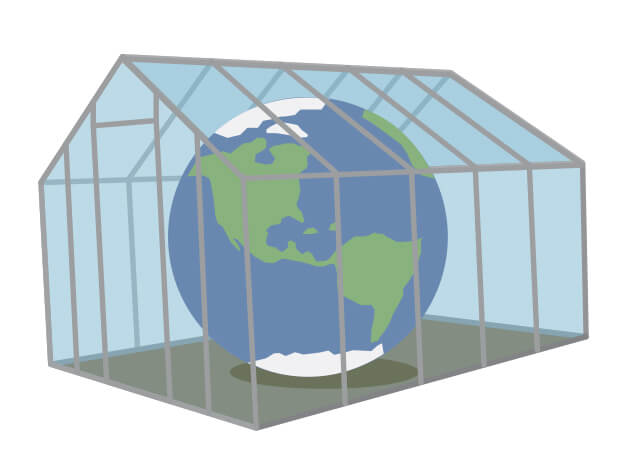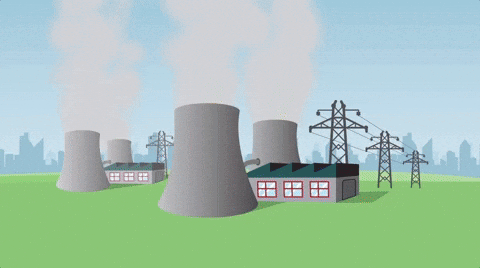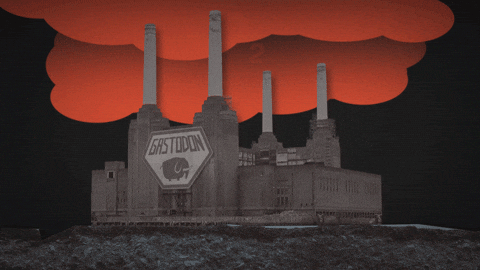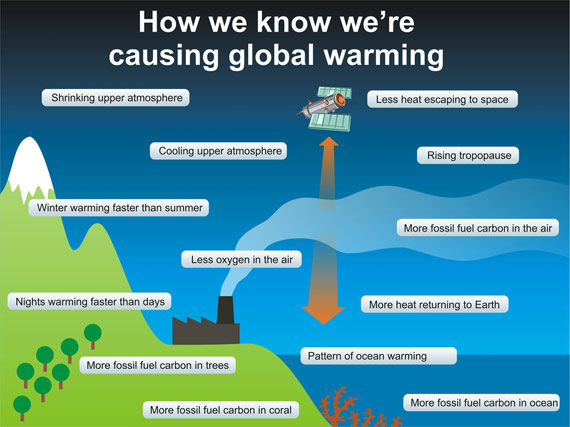CAUSES OF CLIMATE CHANGE / GREENHOUSE EFFECT
Introduction
The aim of
this report is to explain what is the greenhouse effect, what are its positives
and negatives effects, and how we can contribute to decrease the hight emission
of gases to the atmosphere.
What is
the Greenhouse effect?
Greenhouse
gases include water vapour, carbon dioxide, methane, nitrous oxide, ozone and
some artificial chemicals such as chlorofluorocarbons (CFCs).
The absorbed energy warms the atmosphere and the surface
of the Earth. This process maintains the Earth’s temperature at around 33
degrees Celsius warmer than it would otherwise be, allowing life on Earth to
exist.
Greenhouse effect and human activities
The
problem we now face is that human activities – particularly burning fossil
fuels (coal, oil and natural gas), agriculture and land clearing – are
increasing the concentrations of greenhouse gases. This is the enhanced
greenhouse effect, which is contributing to warming of the Earth.
A simplified animation of the greenhouse
effect.
Gases that contribute to the greenhouse effect
- Water vapor. Increases as the Earth's atmosphere warms, but so does the possibility of clouds and precipitation, making these some of the most important feedback mechanisms to the greenhouse effect.

- Carbon dioxide (CO2). A minor but very important component of the atmosphere, carbon dioxide is released through natural processes such as respiration and volcano eruptions and through human activities such as deforestation, and burning fossil fuels. Humans have increased atmospheric CO2 concentration by more than a third since the Industrial Revolution began. This is the most important long-lived "forcing" of climate change.
- Methane. A hydrocarbon gas produced both through natural sources and human activities, including the decomposition of wastes in landfills, agriculture, and especially rice cultivation, as well as ruminant digestion and manure management associated with domestic livestock. On a molecule-for-molecule basis, methane is a far more active greenhouse gas than carbon dioxide, but also one which is much less abundant in the atmosphere.
- Nitrous oxide. A powerful greenhouse gas produced by soil cultivation practices, especially the use of commercial and organic fertilizers, fossil fuel combustion, nitric acid production, and biomass burning.
- Chlorofluorocarbons (CFCs). Synthetic compounds entirely of industrial origin used in a number of applications, but now largely regulated in production and release to the atmosphere by international agreement for their ability to contribute to destruction of the ozone layer. They are also greenhouse gases.
Causes of the global warming
Positive effects
·
This
phenomenon allows to regulate the temperature of the Earth without drastic
variations, making it habitable.
 ·
The
retention of gases through the entry of solar rays, allows the
·
The
retention of gases through the entry of solar rays, allows the Earth to remain at an average temperature of around 15 °, so that it would be impossible without their participation leaving almost impossible life in it with -40 ° on average.
·
Contribution
of heat retention to the Earth for its correct
development.
development.
Negative
effects
·
Reduction
in the surface of glaciers and, as a consequence, elevation of water levels in
the seas and oceans
·
Possible
floods of areas near the sea or islands
·
Affectation
of the ecosystems by the change in the climate, with which plants and animals
must adapt to a new situation
·
Reduction
of water resources due to droughts and greater evaporation of water, certain
fertile areas could become deserts
·
Negative
impact on agriculture and livestock due to changes in rainfall
How
to reduce the excess of gases
1.
When you go to buy electronics products make sure they are energy efficient.
2.
Use the water correctly. Do not leave the tap open while you shower or brush
your teeth.
3. Recycle everything you can. Separate the garbage according to each type.
3. Recycle everything you can. Separate the garbage according to each type.
5.
Replace the incandescent bulbs by LED lights,
6.
Buy Fair Trade products, which will have been produced in environments that
respect the environment.
7. Install devices that help you save energy.
8.
If you can avoid it, do not buy packaged meat
9.Get
used to go shopping with your own reusable bags to consume less plastic.
Conclusion
The greenhouse effect is very positive, because without
it we could not live on Earth, but if we increase it, it could be very
dangerous for us, so we have to change this. All the inhabitants of this planet, we have to take measures
to stop climate change and the emission of gases to the atmosphere. The big
decisions, taken by the governments of the countries, are fundamental but we should all contribute as much as possible.
Work made by: Ana Lizana, Julia Balderas, Nerea Contreras, Luis Hueso and Pablo Nieto,
Alba Longa 3ESO A






Comentarios
Publicar un comentario